5. Joaquin Phoenix (Larry ‘Doc’ Sportello) – Inherent Vice
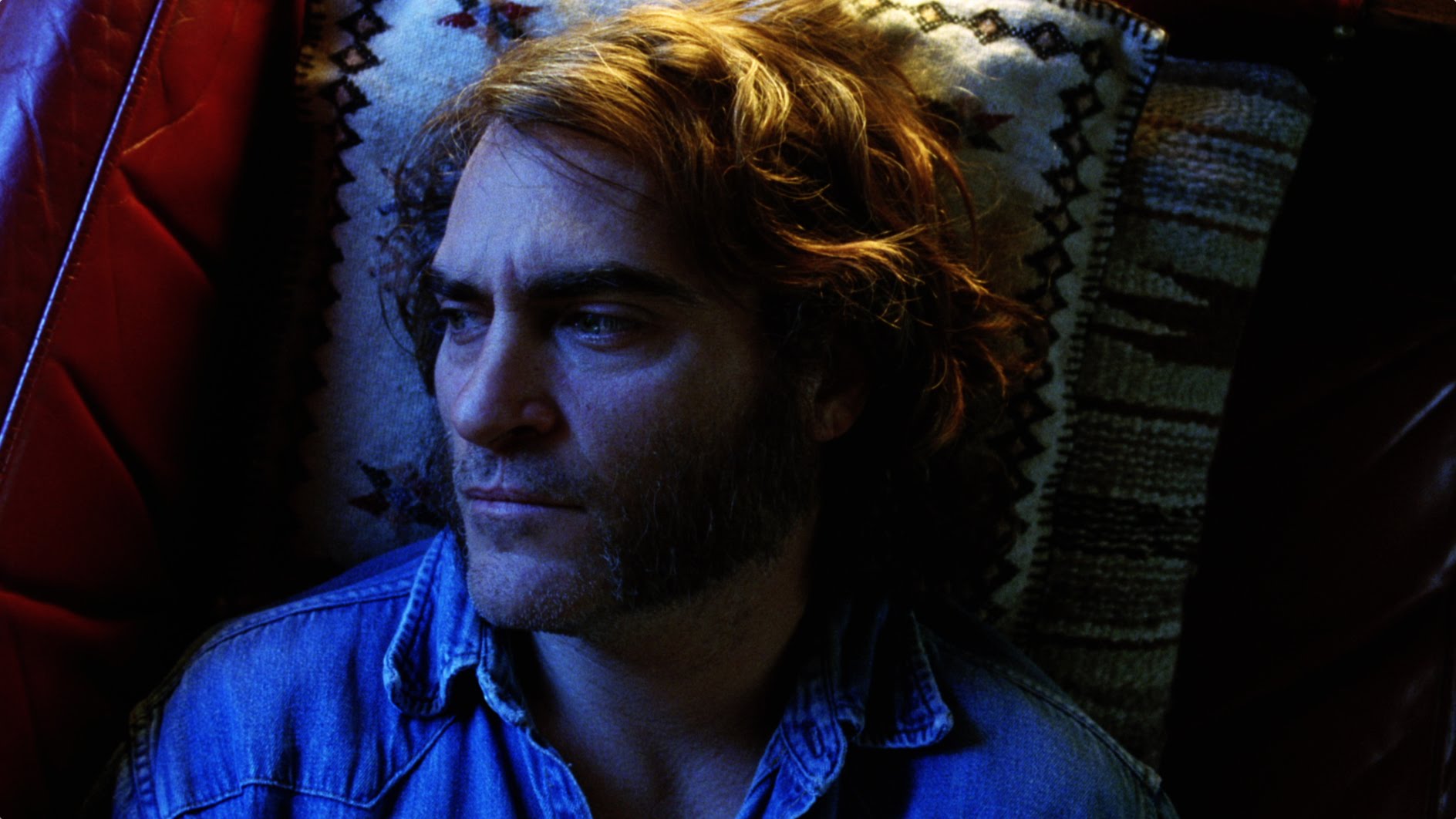
When discussing working with Joaquin Phoenix on the set of Inherent Vice, Anderson talked admirably about Phoenix’s commitment to the role: “It required him to not wear shoes for the length of the shoot”, he said, meaning that, by the end of filming, “his feet were f*****g disgusting!”.
Indeed, Phoenix’s performance as pot-head private detective Larry ‘Doc’ Sportello appeals directly to the senses of the audience; you feel as though you can almost smell Phoenix’s grimy toes and unwashed hippie hair from your seat in the auditorium. This adds to the sincerity and overall genuine feel of his performance.
Inherent Vice was unfairly released to a mixed critical reception, largely due to the audience feeling confused by the many twists the narrative makes and the many characters with outrageous Pynchon-esque names we are constantly being introduced too much for some.
What makes Phoenix’s performance so superb is how he reacts to this aspect of the narrative, showing how Doc feels as confused as we often are. The way he screws up his face, furrows his brow, and scratches his head with joint in hand as he attempts to figure out what the hell is going on is incredibly charming in its naivety. Above all, Phoenix deserves a place in the list if only for his ability to conjure so many different faces to express the state of being high.
4. Adam Sandler (Barry Egan) – Punch Drunk Love
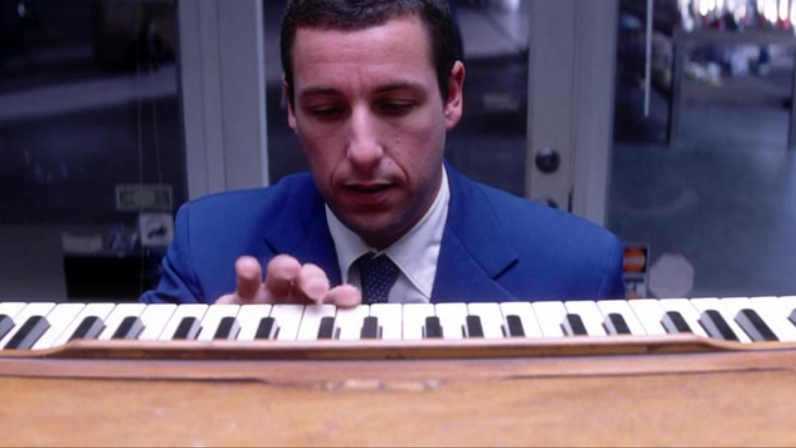
You wouldn’t know it now, but Adam Sandler can actually make a decent movie. Roger Ebert summed up perfectly the experience of watching Sandler in Punch Drunk Love: “There is a new Adam Sandler on view in “Punch-Drunk Love” – angry, sad, desperate. In voice and mannerisms he is the same childlike, love-starved Adam Sandler we’ve seen in a series of dim comedies …
Given a director and a screenplay that sees through the Sandler persona, that understands it as the disguise of a suffering outsider, Sandler reveals depths and tones we may have suspected but couldn’t bring into focus”.
When PTA announced that he wanted to make a 90 minute picture starring Sandler off the back of Magnolia, people laughed at him. The joke was on them, of course, for what Anderson elicited from Sandler was a nuanced performance which oscillates wildly between a sense of childlike innocence and uncontrollable fits of violence.
Similar to the way Hoffman invites a duel reading of Scotty J., Sandler invites us to feel both sympathy for poor Barry who is constantly bullied by his older sisters, and who gets himself on the wrong side of a gang of brothers after calling a sex-line, but also laugh somewhat uncomfortably at him when he gives into his moments of intense rage. As Ebert states, it is a first class performance for the way it both plays upon and subverts Sandler’s star persona to create a character with real human depth.
3. Phillip Seymour Hoffman (Lancaster Dodd) – The Master
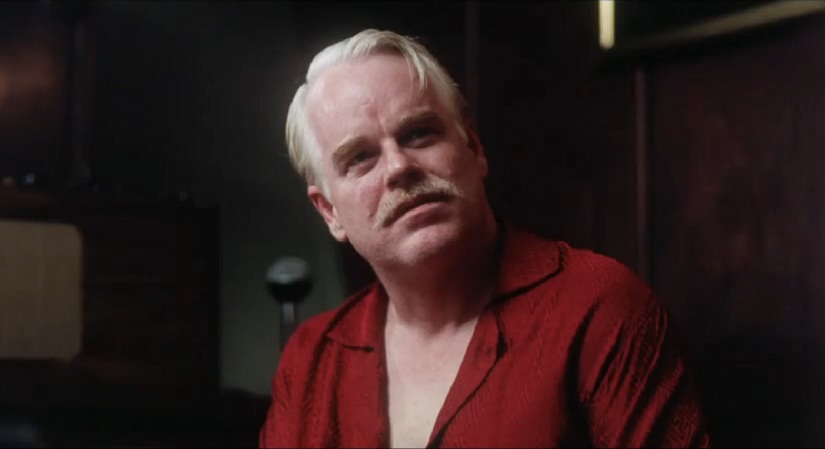
Phillip Seymour Hoffman really was a master of the acting world, and he will sorely missed for many years to come. We can at least draw some comfort from the fact that he left a wonderful legacy behind him, putting in some incredible performances over the years and frequently working with Anderson. Arguably his finest performance in an Anderson film is his turn as Lancaster Dodd, the shady yet sincere patriarch and mastermind behind the Scientology-esque cult The Cause.
Just as Paltrow brought depth to Clementine, Hoffman imbues Dodd with many human complexities: he is seemingly sincere in his gregariousness and the way he manages The Cause and its followers. Yet there is something going on beneath the surface that Hoffman and the film as a whole allude to but never make explicit.
Just like Barry, Dodd is also prone to sudden outbursts of anger, evidenced by his memorable rebuking of a critic of The Cause. Hoffman embodies these nuances and contradictions inherent in Dodd, as someone who is both loving but may also be using The Cause as a way of furthering his own ends and inflating his own self-importance.
Perhaps the greatest aspect of Hoffman’s performance is the relationship which develops between Dodd and Freddie, played by Joaquin Phoenix. Dodd takes Freddie under his wing for much of the film, introducing him to the people and the processes of The Cause to help him find some stability in life.
This relationship culminates in the heartbreaking scene towards the end of the film when Dodd sings Freddie a rendition of ‘On a Slow Boat to China’, demonstrating the love he still has for Freddie, but also suggesting that they must necessarily part due to Freddie’s loss of faith in The Cause. This is perhaps one of the saddest moments in the history of cinema, and is a virtuoso display of Hoffman’s acting ability.
2. Daniel Day Lewis (Daniel Plainview) – There Will Be Blood
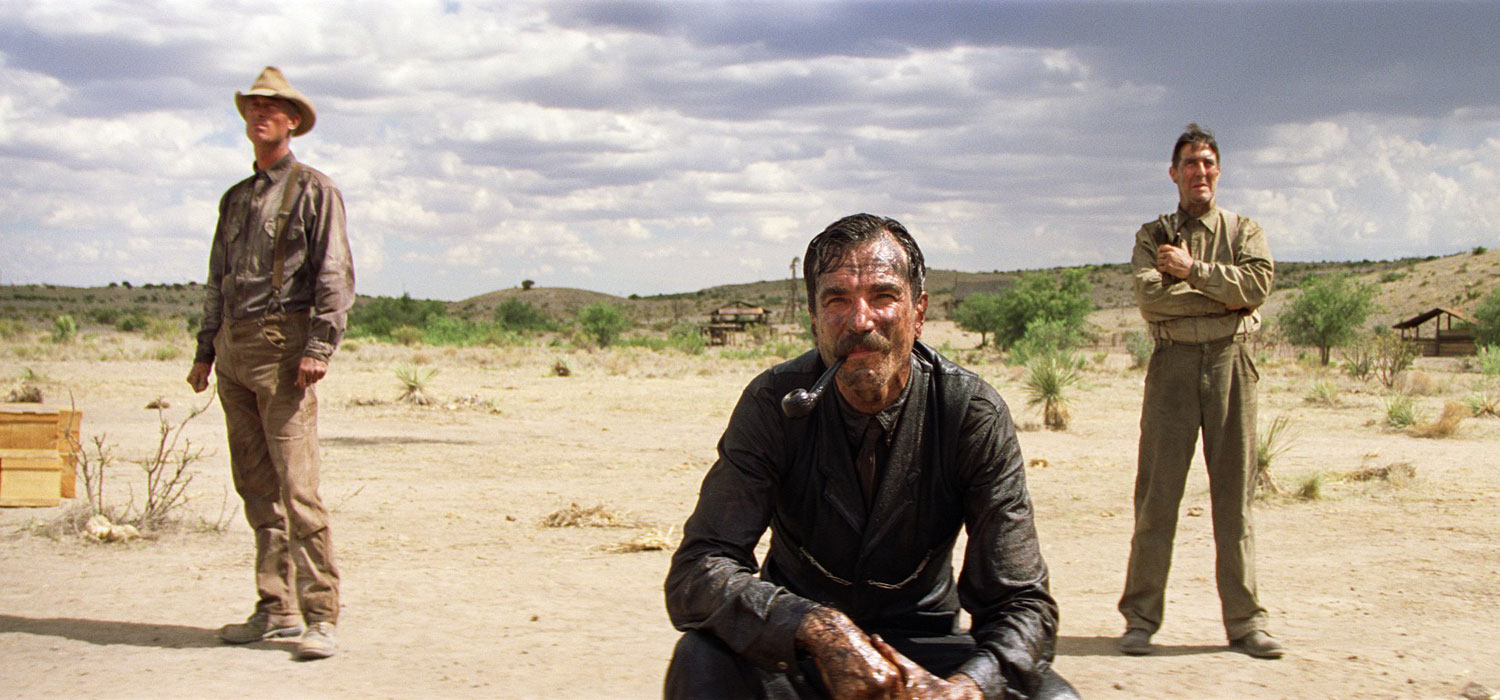
Daniel Day Lewis’s turn as Daniel Plainview is perhaps not only one of the greatest performances in an Anderson film, but is, arguably, one of the greatest performances of all time for which he deservedly won his second Oscar.
There are many aspects of Day Lewis’ physiognomy and delivery which create his spectacular performance as Plainview: the clipped John Huston-esque manner with which he speaks, the way he curves his mouth into a sneer as he swindles some and berates others, and the hunched and drooling monster he has become by the end of the film are beautifully captivating.
As mentioned, Kel O’Neill dropped out of making There Will Be Blood, because, apparently, he couldn’t take working with Day Lewis. This says something of the intensity of Day Lewis’ performance which oscillates between presenting the calm veneer of a shrewed businessman, and the hysteric rage of a man demonically possessed.
And yet his performance is not 2-dimensional; however much we don’t want to admit it, we do sympathise with Plainview when he sends H.W. away, and we share in his confusion when his long lost brother dubiously reveals himself.
“I told you I would eat you!” he screams at Eli in the preamble to Eli’s murder, proclaiming himself sovereign over the reverend. Indeed, King he is with this magisterial performance.
1. Joaquin Phoenix (Freddie Quell) – The Master
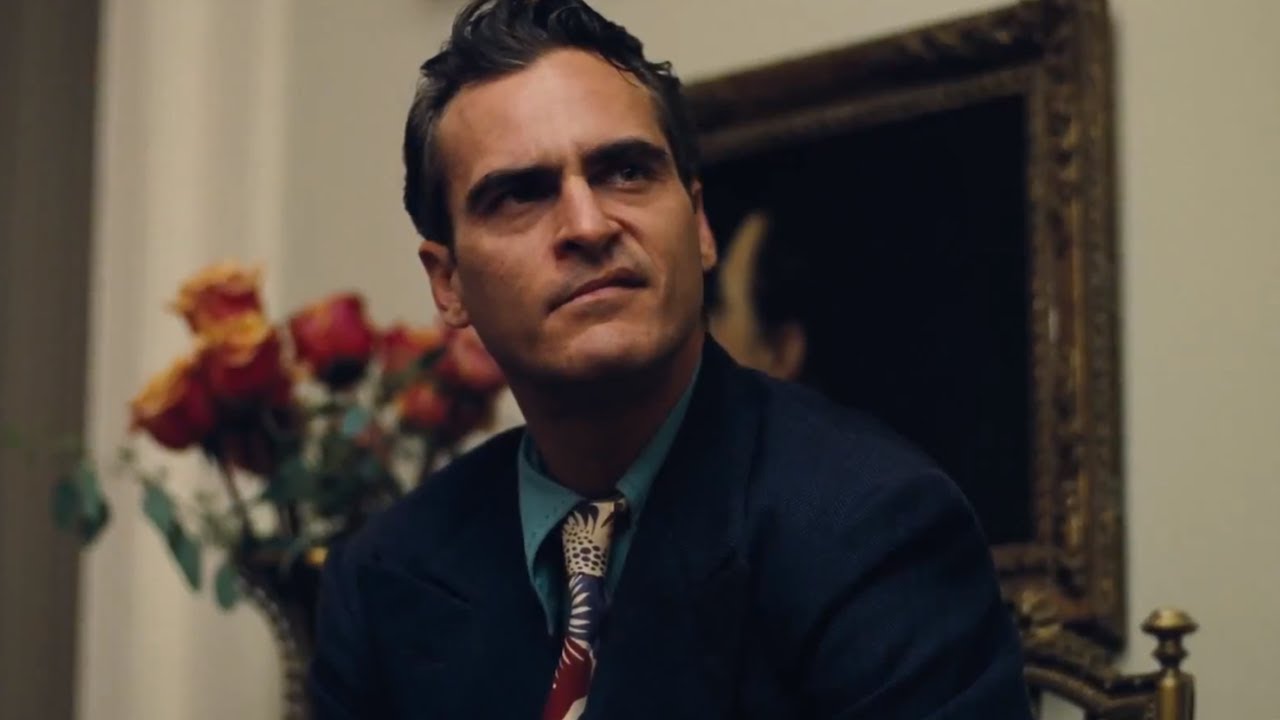
There is a theme developing here in terms of the characters Anderson writes, for Freddie Quell is something of a mélange of many of the characters already described; he is lost and desperate like Paltrow’s Clementine, prone to fits of rage like Sandler’s Barry, and is childlike similar to his portrayal of Doc.
Indeed, there is a distince air of naivety coupled with an impulse towards violence characterising Freddie. What makes the performance great is how Phoenix’s portrayal of this complex character is so rounded; the way Phoenix hunches over, placing his hands on his hips and curving his mouth into a slanted grin are all small details which make for a rounded, human portrayal of Fredddie’s mannerisms and idiosyncrasies.
His Southern drawl sometimes borders on unintelligibility, but that doesn’t matter; Phoenix’s characterisation is so believable, we become captivated by his human portrayal of a lost, wandering soul who gets caught up in a movement he doesn’t really understand because it seems to be offering him the salvation he needs.
What is more, another aspects of Phoenix’s performance which lend it this weight is the way he communicates how Freddie is hurting emotionally. When Freddie comes home to find his sweetheart, only to discover she has married another man, we are as devastated as he is, for it is made clear that she offers a ray of hope for the returning veteran. But he does find a surprising soul mate in the form of Lancaster Dodd, which gives rise to one of the most touching relationships to blossom, and then fade away.
Phoenix’s two performances in Anderson’s films are so beautifully tonally pitched, we can only hope the two continue to collaborate with each other in the future.
Author Bio: Christopher Sanders is a cinephile from London. In his spare time he loves watching and making movies, listening to the Beatles, and proselytising to anyone who will listen that Paul Thomas Anderson is the best director in the world.